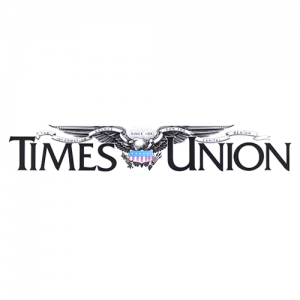
Last July, Sen. Chuck Schumer wrote an editorial for The New York Times advocating for sweeping reform of the primary system. “For those of us who are in despair over partisanship and polarization in Congress, reform of the primary system is a start.”
It’s more than a start. There are 2.9 million independent voters in New York whose voices are left out of an important part of the democratic process — vetting candidates for the general election. Reformers recognize that our current electoral system is out of sync with the country. Forty-three percent of voters now identify as independents. Half of young voters, ages 18 to 29, do not identify with any political party. Yet the current system allows the majority of voters to participate only after all of the decisions have been made to serve as a rubber stamp for decisions made by party activists.
This is not only unfair; it further insulates our elected officials from the voters.
The partisan control of the primary system further damages the growing trust gap between the people and our government. In the six months since Schumer penned his editorial, the fight over how primaries are conducted — and who gets to vote in them — has heated up. There is a growing conflict between partisan insiders and reformers. Unlike most political fights in America, this one is not between Democratic interest groups and Republican interest groups. It is between interest groups of both parties and the rest of the country.
Political stakeholders want as much control of the primary system as they can get. In response to the growing movement to open primary elections Democratic and Republican lawmakers and party leaders from Hawaii to South Carolina have intensified their legal, legislative and public relations efforts to enact closed primaries in states that currently allow independents to “pick a primary.” At the same time, a rapidly expanding coalition of independents and insurgent Democratsand Republicans is incubating efforts to enact nonpartisan, open primaries across the country. Reformers are asking the courts, state legislators, members of Congress and the voters to consider two fundamental questions.
First: to whom does the first round of elections belong, the voters or the parties?
Second: Do the parties have the right to use taxpayer funds to conduct “members only” primaries?
Partisans insist that their parties are private associations and as such have the first amendment right to decide who can, and who cannot, participate in their primaries. They assert this even as they accept hundreds of millions of taxpayer dollars to fund primaries that exclude voters.
Schumer has been quiet for the last nine months on this subject. But by picking up the mantle once again, he can exert a powerful influence over this debate. The Democratic Party of New York could decide to allow the 2.9 million registered independent voters to vote in their 2016 presidential primary. Schumer could pick up the phone and ask his party to do the right thing and allow independents access. Over the last several months, thousands of New Yorkers have signed a petition urging him to do just that.
The fight for primary reform is heating up. Schumer made clear where he stands, and now millions of independent voters in New York need him to stand up for their right to vote in the 2016 presidential primaries.
More Information
Jessie Fields is a physician, a founding member of the Independence Party in New York City and is on the board of Open Primaries, a national nonprofit organization working to enact and protect open and nonpartisan primaries. Anthony Del Signore is a recent graduate of Pace University and an open primaries activist.